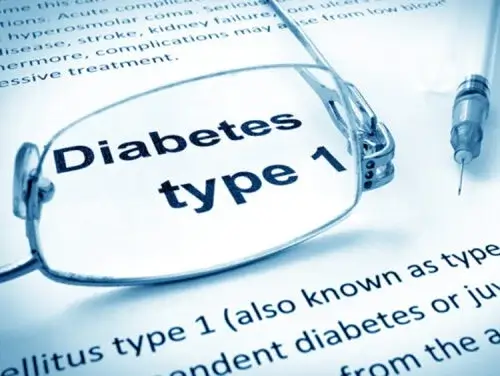Type 1 diabetes, often known as juvenile diabetes, is a chronic condition where the pancreas produces little or no insulin, a hormone essential for regulating blood sugar levels. According to the CDC, approximately 2 million Americans live with type 1 diabetes disorder. While everyone with Type 1 diabetes carries the genetic predisposition, not all individuals exhibit symptoms at birth. Often, Type 1 diabetes remains dormant through adolescence and may be triggered by factors such as a viral infection. As an autoimmune disease, Type 1 diabetes causes the immune system to mistakenly attack insulin-producing cells. Although the exact cause of Type 1 diabetes is unknown, its symptoms, effects, and Type 1 diabetes treatment options are well-documented.
Symptoms and Diagnosis of Type 1 Diabetes
Symptoms of Type 1 diabetes can develop rapidly and may include increased thirst, fatigue, unintended weight loss, blurred vision, and frequent urination, particularly in younger children. If left untreated, Type 1 diabetes can lead to severe complications like nerve damage, kidney issues, and heart disease.
Typically diagnosed in children or young adults, Type 1 diabetes can, however, occur at any age. A family history of the disease can be an indicator, but it is not a definitive predictor.
Managing Type 1 Diabetes: Treatment and Lifestyle Adjustments
Although there is no cure for Type 1 diabetes, effective management is possible through various strategies:
Diet
A healthy diet plays a crucial role in managing Type 1 diabetes. Avoiding sugary and processed foods while embracing a balanced diet rich in fruits, vegetables, whole grains, lean proteins, and healthy fats helps regulate blood sugar levels and prevent complications.
Exercise
Regular exercise is essential in managing Type 1 diabetes. It enhances insulin sensitivity, reduces the risk of complications, and helps regulate blood sugar levels. It’s important to monitor blood sugar levels before, during, and after physical activity to avoid hypoglycemia or other issues.
Insulin Therapy
The cornerstone of Type 1 diabetes treatment is insulin therapy. This involves introducing insulin into the bloodstream via injections or an insulin pump. The goal is to maintain blood sugar levels within a target range to prevent both short-term symptoms and long-term health complications. Continuous glucose monitoring (CGM) devices are also valuable for tracking blood sugar levels in real-time and alerting users to fluctuations.
Expert Care for Type 1 Diabetes
At CareFront Medical Group, we provide specialized care for Type 1 diabetes, including diagnosis, management, and treatment at our dedicated diabetes management clinics in San Antonio, Texas. Our services encompass personalized Type 1 diabetes management plans, lifestyle guidance, and medication prescriptions to help you manage Type 1 diabetes effectively. Our team is dedicated to offering counseling for Type 1 diabetes to support you through every step of your journey.
Retake control of your health with expert care from CareFront Medical Group. For comprehensive Type 1 diabetes treatments and management of Type 1 diabetes, call us at (210)-876-1451 or book an appointment online today!
FAQs About Type 1 Diabetes
Type 1 diabetes is a chronic autoimmune condition where the pancreas produces little or no insulin, a hormone essential for regulating blood sugar levels.
Symptoms include increased thirst, frequent urination, fatigue, unintended weight loss, blurred vision, and frequent infections.
Diagnosis typically involves blood tests to measure blood sugar levels and the presence of autoantibodies. It is commonly diagnosed in children and young adults but can occur at any age.
The exact cause is unknown, but it is believed to involve genetic and environmental factors that trigger the immune system to attack insulin-producing cells in the pancreas.
Currently, there is no known way to prevent Type 1 diabetes. Research is ongoing to better understand the condition and potential preventative measures.
The primary treatment for Type 1 diabetes is insulin therapy, which involves administering insulin through injections or an insulin pump to regulate blood sugar levels.
Yes, there are several types of insulin, including rapid-acting, long-acting, and intermediate-acting insulins. The choice depends on individual needs and treatment goals.
Blood sugar levels should be monitored multiple times a day, including before meals, after meals, and before bedtime, to ensure they stay within the target range.
A balanced diet is crucial for managing Type 1 diabetes. It helps regulate blood sugar levels and prevents complications. Carbohydrate counting is often used to match insulin doses to food intake.
Continuous Glucose Monitoring (CGM) involves using a device that tracks blood sugar levels in real time, providing alerts for high or low levels and helping to adjust insulin therapy as needed.

